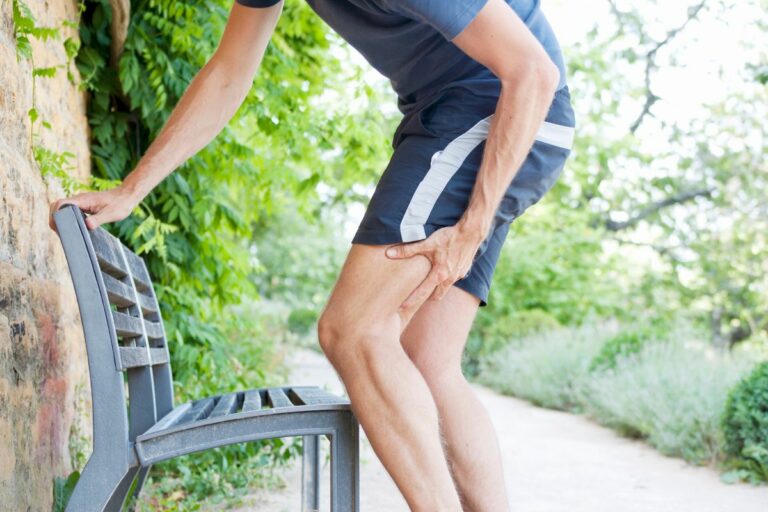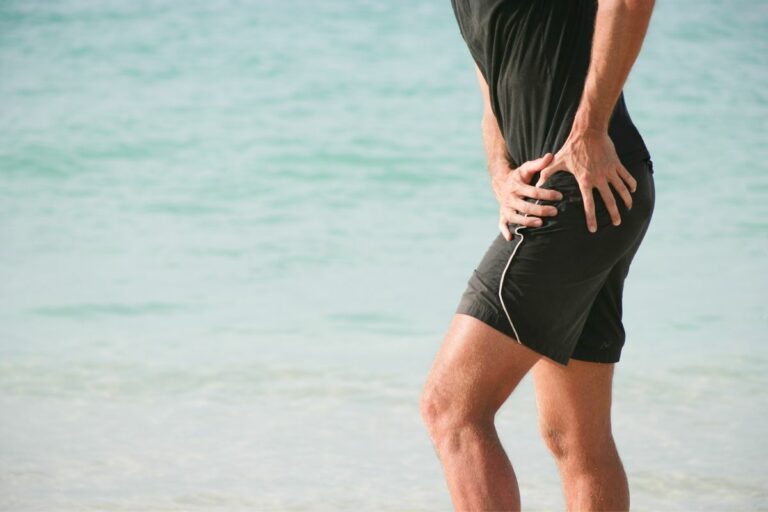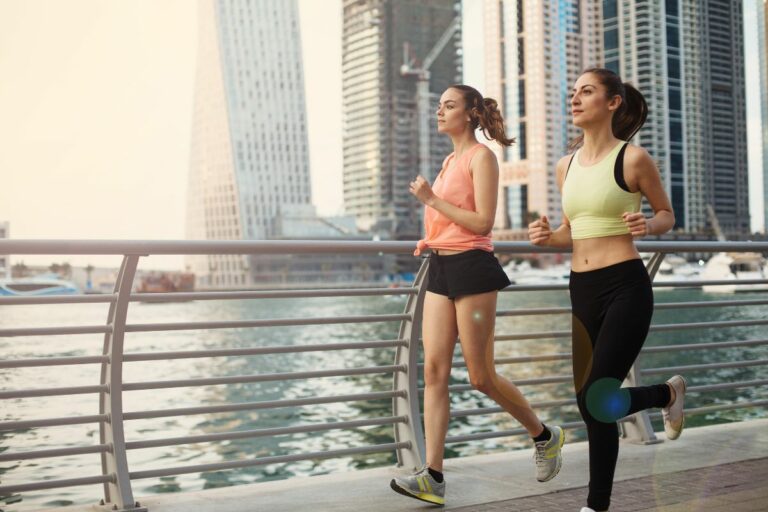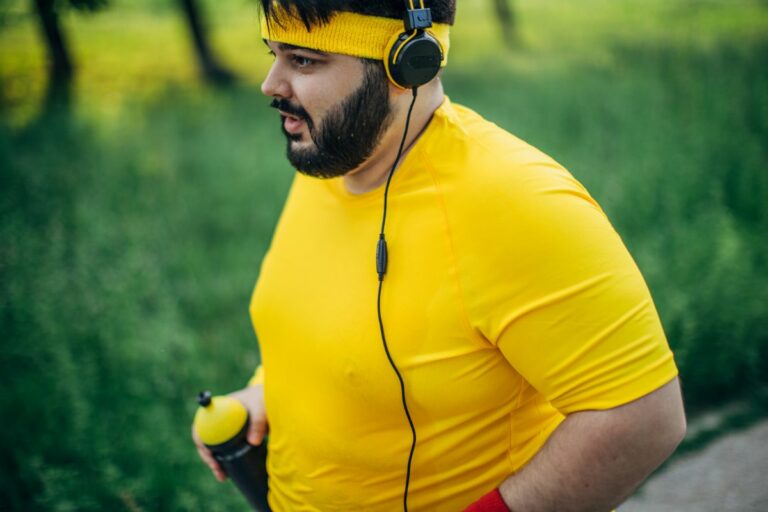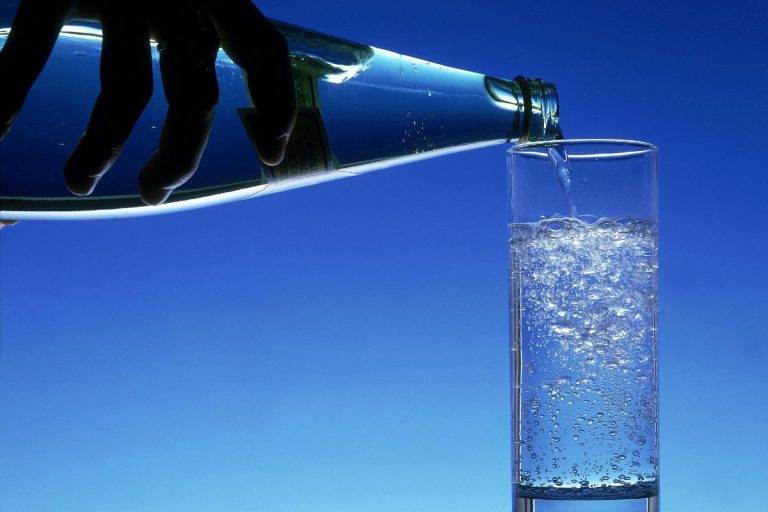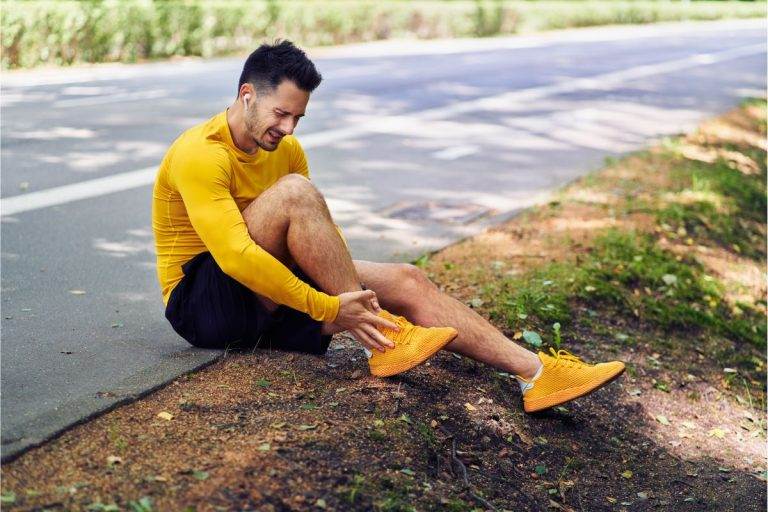Dealing With Sore Legs After Running? These Recovery Techniques Can Help
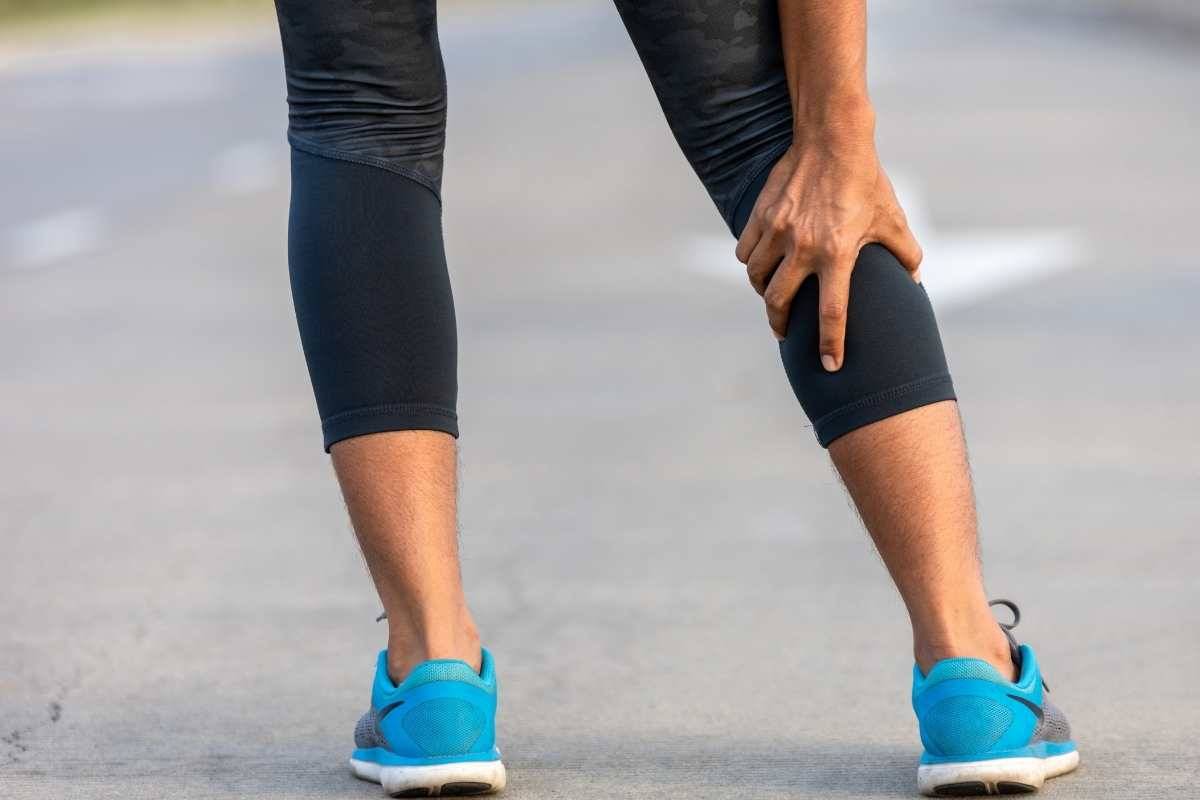
If you get sore legs after running it can be a sign that your body is RECOVERING from exercise.
If you feel SORENESS in your thighs, calves, quads, hamstrings, glutes, lower back, etc. do not fear, you are probably making progress towards getting stronger.
You should expect some soreness, especially if you are NEW to running. That doesn’t mean you have to accept it.
There are ways to reduce the intensity of muscle soreness such as allowing your body enough time to recover before you try again (as running changes your body).
What Causes Sore Legs?
What actually causes the soreness?
DOMS stands for Delayed Onset Muscle Soreness. It is caused by muscle damage and inflammation. When muscles get injured or overworked they start producing chemicals called cytokines to repair themselves.
Chemicals cause pain and tenderness in the affected area.
What causes delayed onset soreness? The answer lies within our bodies.
During exercise, we produce lactic acid, an acid that builds up in our muscles.
Lactic acid is what causes soreness when we exercise.
We can inadvertently contribute to a build-up of lactic acid, but how?
As lactic acid builds up in our muscles, it starts to irritate them. This irritation causes inflammation and swelling. So why does this happen?
1. No Warm-Up
Why do we feel sore after exercising? Well, there are two main reasons.
One reason is that we haven’t warmed up properly before we exercise.
If we warm up before we exercise, the muscles won’t become tight after we’ve finished.
If we don’t warm up before we exercise, then the muscles will stay tight, which means we’ll be unable to move freely.
Equally, if we don’t cool down after we exercise, then the blood flow isn’t returning back to normal. All these factors lead to muscle injury and soreness.
2. Imbalance Or Leg Weakness
Soreness is a natural consequence of running. However, if you have weak muscles in the legs, then you’re more likely to feel pain when you run.

The most common imbalance is weak hamstring muscles and strong quadriceps muscles. These two muscle groups should be balanced.
- Weak hamstrings will make your quads work harder during the run, and your weaker muscles will tire sooner.
- Tight hamstrings mean that your muscles aren’t stretching properly. If this happens, you might have to stretch them more extensively before you run again.
You can try doing some hamstring stretches at home.
How to Prevent Sore Muscles?
What other practices help prevent sore muscles?
1. Healthy Eating
Healthy eating is CRUCIAL when you are exercising more. You should try eating a healthy snack after exercising.
This will help replenish muscle energy stores and start your recovery process.
- Foods high in carbs will help to restore glycogen stores so you can recharge your body.
- Protein helps to recover damaged muscles and provides amino acids that aid in repairing and rebuilding them.
Let’s look at healthy eating in a bit more detail.
2. Pass The Protein/Cut The Carbs
Protein is essential to help build muscle, be sure to make protein the main part of meals.
Good proteins include:
- Cheese
- Eggs
- Lean meat
- Fish
- Seeds and nuts
- yogurt
- Milk
You should also eat good fats which provide energy for your brain and nervous system. Choosing fats that are rich in omega-3 fatty acids may also benefit your heart health.
Good sources of healthy fats include:
- olive oil
- avocados
- salmon
- tuna
- Nuts and seeds
- coconut oil
After a hard workout, you should consume carbs to replenish glycogen stores in your body. These carbohydrates will provide energy for your muscles to repair themselves.
But choose the right carbs such as:
- Oatmeal
- Whole grain pasta
- Quinoa
- Fruit
- sweet potatoes
You should also ensure you get adequate vitamins and minerals. Your body needs a balanced supply of vitamins and minerals to function properly.
Foods that are rich in iron, calcium, zinc, magnesium, vitamin B12, vitamin D, and potassium will give you the best chance of achieving optimal health and fitness.
3. Keep Moving On Rest Days
You should always try to get enough rest between workouts. Running every day is not the best option for most.
If you feel tired, sore, or stiff, you probably didn’t give yourself enough recovery time. Your body may not be able to handle running 8 miles a day.
So have rest days.
On a rest day, try light activities such as walking, running, swimming, or yoga to keep your muscles loose and limber. These activities will increase blood flow and help flush out toxins.
Varying your exercises can also help you target specific parts of your body and use them differently.
For example, if you’re working on your legs, you might alternate between weight lifting and cardio. Or if you’re doing pushups, you could switch between lying down and standing up.
Cool Down
A cooldown is an essential part of any workout routine. Your heart rate will naturally slow down after a hard workout.
However, if your heart rate drops too low, you could experience symptoms like dizziness, faintness, or even fainting. This is especially true after running.
To avoid this, cool down slowly and allow your body time to recover.
Try stretching out your muscles and taking a few deep breaths before returning to your regular activities.
Footwear
Running shoes are an ESSENTIAL part of any runner’s wardrobe.
If you’re not sure what type of shoe to wear, there are many factors to consider before buying your first pair. Do you like the feel of running barefoot?
Do you prefer stability or cushioning? What kind of terrain does your run take place on? Will you be doing long runs or short sprints?
Are you looking for a specific brand or style?
When it comes to how running shoes should fit, you need to find a happy medium. They shouldn’t be so tight that you can’t move your toes. You don’t want them to be so loose that your foot slides around.
These questions will help you narrow down the options available to you. The right footwear will prevent any unnecessary strain on muscles and will support your weight efficiently.
In Summary
Running is a great way to keep your body trim and fit and you don’t need to suffer muscle soreness with the right prevention and treatments.
If you suffer from cramping while running, we have another piece of article about how to prevent cramps.

